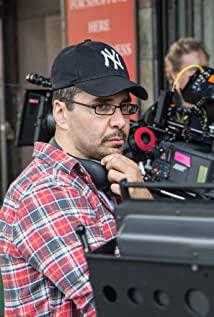This film is not a good masterpiece, it can almost only be regarded as a qualified licensed product from the perspective of technical means.
But when discussing techniques, we are just using a clone. As a kind of urban senior movie-watcher and urban literary and artistic youth, dismissively entertaining commercial works, this kind of avatar, you and I are all too familiar.
Think back to another movie, sniping on Wall Street, using violence to solve the story of Wall Street bosses. Everyone will find that more people appreciate the movie, isn't it, there is a kind of excitement of spitting out, borrowing the knife to kill, and allowing oneself to detach, and even forget the innocent passers-by who died in the last out-of-control sniper. From the standpoint of the poor and exploited, the story of sniping is a private revenge and the use of violence to solve the class struggle, so it is very popular. Even forgetting that violence is evil, even approving the necessary sacrifices.
But in this episode, the cleanup of humanity, the position is set on the rich middle class-when they can rest assured, the kindness of the children provokes trouble, but it also arouses the fighting spirit of the whole family and makes them self-preserving. Disintegrated in an instant, unprepared, and once again a target, the envy and hatred within the middle class in the neighborhood prevailed. From the beginning to the end, this story is confounding, because good cannot end well, and evil has not been eradicated.
Only violence is real, works instantly, and is irreversible.
The two films are in the same context, and both mention "sacrifice". But no one wants to be sacrificed.
Both films are saying that no matter how unjust, society is regulated by the rules of the game. When the rules are broken, no one can protect themselves. The only appeal is violence.
Several sources of violence are revealed here: mutual enmity between the rich and the poor, and self-preservation for survival. When the heroine uses violence to stop the female neighbor's violence at the last minute, it is another kind of desperate violence—the attempt to prove the good will ultimately be hopeless.
Goodness, life, harmony...Did these well-known positive energies survive? Can they only be carried forward in the heart of human ideals in the form of concepts and beliefs?
Human hatred is endless. It has nothing to do with living conditions or education level-all social education is just for restraint.
Of course, the main appeal of the story lies in the kindness of Sandin's family, the weak and almost hypocritical kindness of the middle class. The story allows this kind of goodness to survive, but the prospects are not optimistic. Three lonely figures in the morning light can never forget the killings they experienced. No one has clean hands.
Putting yourself on the ground, how to do it, is a heinous crime.
The most important thing is this: no one can be clean and good.
When watching a movie, everyone will ask themselves, if this happened, what would you do on the night of the annual legal killing?
Do you have anyone you want to kill? Do you want to destroy the people you despise, hate, and jealous?
Do you have a pure intention to kill? Not for any reason, just because there is a large amount of evil in my heart that needs to be exported?
If you don’t kill, save, or be killed, does it mean that goodness survives?
No one can avoid this clone. I know this clone of me is also watching a movie, and it feels restless and sad.
View more about The Purge reviews











